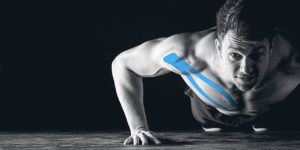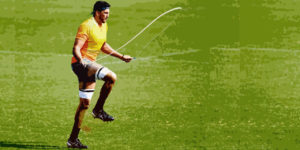Caffeine loading for increased rugby performance
- Michael Hedlesky
- Diet, Performance
I guess I should put a disclaimer here first. I have a passionate deep seeded love for coffee. There isn’t a day of my life that starts without a slow pour, post-bloomed Chemex filled with the liquid life blood that gets me through long days of yelling at people to put their weights away and also keeps me breathing during long grueling training sessions. I am not a hipster about much of… well… anything.
But, if you aren’t making coffee with a Chemex or some press, then you’re missing out. Sadly, the best cup of coffee that has ever graced my taste buds was in, non-arguably, the worst place in the universe.
Suzdal, Russia is a depressing nine thousand hour bus ride from the Moscow airport. The 2013 IPF Classic Powerlifting World Champs were held in the town.
Also located in the town was a café with the best coffee on earth. I am not sure why it was the best. Every time I asked someone about it, they yelled at me in angry, guttural noises that I couldn’t decipher. This was how the locals got their point across to the foreigners in town for the IPF. The trip was worth it for the experience of that coffee alone. The gold medal I won was pretty cool too. You haven’t seen the extreme spectral ends of human emotion until you’ve seen the anger of a Russian strength athlete losing a strength competition to an American.
What caffeine doesn’t do
Caffeine has a seemingly endless list of performance enhancing benefits. The only challenge to this seems to comes from “bro-science,” myths, and just plain incorrect assumptions about what coffee and the drug it delivers does in your body. Let’s first talk about what caffeine doesn’t do.
Dehydration
The suggestion that caffeine will dehydrate you is nonsensical and unfounded. One excellent study by Ahmed et al. took a comprehensive look at the fluid balance in habitual and occasional coffee drinkers. The results proved conclusively that caffeine did nothing remarkable to the fluid or electrolyte balance of any participant. Here is an interesting graphic explaining another study. Dehydration is also commonly blamed for muscle cramping in rugby games. This is despite the fact that sports cramps is a direct result of isolated muscle fatigue, not dehydration.

Source: mysportscience.com
There isn’t any convincing evidence that coffee or straight caffeine has diuretic properties that may lead to eventual dehydration. A practical application argument can be made about too much caffeine causing a higher frequency of urination. Well, yes. I have noticed these findings as well. From personal experience, this only becomes a noticeable inconvenience on days where I train because I hate myself and push my body well past the “sweet spot” (which will be designated later in the post) for caffeine ingestion contributing to sports performance. I do believe high caffeine (specifically in the form of coffee) can cause mild diuretic effects. But, this only becomes a problem when you’ve taken in too much to be beneficial for rugby.
High Blood Pressure
Even in subjects with higher blood pressure issues, exposure to caffeine showed no significant increases in blood pressure. Ahmed et al. and Astorino et al. monitored individuals while performing near max and max effort lifts while closely paying attention to blood pressure (which understandably sky-rockets with heavy lifting). There was no significant difference between controls and caffeine interventions during heavy/intense training. Honestly, before I started researching for this post, I had never even heard this claim before. I have no idea how or why it originated. But, it exists. And it’s dumb.
Drug Tests
Yes. The NCAA has a limit for the amount of caffeine you’re allowed to have in your system. This naturally means caffeine ingestion under that limit is fine. The limit is 15 micrograms per milliliter in urine. Now, let’s break this down. Keep in mind for this example that it’s pretty widely accepted that 2 grams (2000mg) of caffeine at once will straight up kill most people. One study by Van Der Merwe et al. found that doses of 17.53mg/kg of bodyweight led to urine tests that still only reached 14 micrograms per milliliter. For someone like me who competes in the 120kg class (264lbs), this means I would be able to ingest 2100+mg of caffeine and still pass the drug test. My performance might slightly suffer because I’d be limited to competing in the “Post Mortem Only Division,” but at least my pee would be able to fuel a Prius.
I mention the NCAA because there are tons of rugby clubs and leagues around the country who use the doping standards espoused by the NCAA. Luckily, WADA (the world anti-doping agency) has dropped caffeine as a “banned substance.”
Unfortunately, there just aren’t that many studies on synergistic compounds that affect the bioavailability of caffeine and what that exactly does to urine concentration. Substances such as green tea extract, theanine, and taurine all have unique effects on caffeine properties. Enough so that this topic should probably be another post.
Health Benefits of Caffeine
Habitual caffeine/coffee consumption may help with controlling glucose in patients with type 2 diabetes. It may also help with controlling insulin in general by making the spike in response to food slightly less drastic. In healthy individuals it has been shown decrease LDL levels, improve symptoms of both Alzheimer’s and Parkinson’s, and may also help with improving cirrhosis symptoms and liver function in general. Mood and alertness are commonly elevated with caffeine ingestion. Also, coffee may hold just as much as, maybe more than in some cases, antioxidant properties as green tea.
Finally… Performance Benefits of Caffeine
For predominantly aerobic activities, caffeine is believed to improve endurance by a mechanism that slows the use of glycogen as a primary use of energy and greatly increases fat mobilization instead. Couple this with the fact that caffeine is a CNS stimulant (flips the fight or flight response on), and you have the perfect performance enhancing supplement for all aerobic activity (this includes improving the recovery qualities of all anaerobic exercise as well).
As far as power production, caffeine appears to increase the sympathetic nervous system contributions to high-intensity activity. In other words, motor unit recruitment increases with caffeine consumption. Motor Unit Recruitment (not to be confused with player recruitment) allows athletes to increase every neuromuscular factor involved with high power movements.
Caffeine allows the athlete to have a much greater potential for maximal voluntary muscular contraction and, thus, enhanced coordination and speed of recruitment of involved musculature for high power movements. We encourage rugby players to train for strength over size and to focus on lower-body power workouts, especially in the off-season. Both of these training methods can be supported by the use of moderate doses of caffeine like that in Pre-Game, our pre-workout powder.
Caffeine and Rugby Performance
The logical question now is, “Since caffeine does seem to improve general aerobic and anaerobic qualities, what does it do for sport specific movements and tasks on the rugby field?” I am so glad you asked, voice in my head! Good thing Stuart et al. had the same question and set up a study that involved monitoring sprint performance in a simulated rugby game. You guessed it. Caffeine significantly improved repeated match-like sprint performances.
The caffeinated group performance had a 10% increase in scores over the non-caffeine group. The caffeine group also showed significantly increased passing accuracy as well. Schneiker and his team found similar results with a little more controlled scenario. He used two 36 minute halves of simulated team sports play consisting of 18 repetitions of 2-minute blocks. The 2-minute blocks involved 4 seconds of sprinting with 120 seconds of active rest. He found that sprint quality and time were preserved more effectively in the caffeine group compared to control.
Ok. I’m sold. How do I load caffeine for rugby games?
As discussed earlier, 17.53mg/kg will most likely hinder performance. A load somewhere closer to 3mg/kg to 6mg/kg is the sweet spot for performance enhancement. Team sports play, strength training, and endurance work are all shown to be maximized 1-hour post ingestion, and the effects last anywhere from 3 to 5 hours. Also, caffeine anhydrous appears to work best for performance.
I think this is true because a tablet/capsule form of caffeine can all be taken at once instead of sipped out of a delicious Americano over an extended period. The immediate ingestion of the entire dose most likely helps control the exact digestion time of the caffeine.
For habitual coffee shotgunners like myself, we can still experience the increases in sports performance from caffeine. For some reason, even after week long breaks from coffee, serum markers of caffeine ingestion are still present at the same levels for the same time as non-habitual (aka weirdos) caffeine ingestion.
What this means is that you can slam all the coffee you want forever and still get benefits from it when it’s time to lift or run (assuming you timed the right amount correctly). From a strictly rugby-performance benefit standpoint, the research is showing there is never really any reason to ever stop drinking coffee before rugby games and training.
4 tips for caffeine consumption before rugby
- 3mg/kg to 6mg/kg of bodyweight for caffeine is the sweet spot. Under 3mg/kg isn’t enough to elicit a significant improvement. Over 6mg/kg (closer to 9mg/kg) may actual start to curve the bell and hinder/decrease performance. Remember, 2 grams (2,000mg) is the toxic dose for most humans. Please don’t kill yourself by accident.
- Your caffeine should be completely ingested 1 hour before competition, training, or games.
- Pills and tablets seem to work best. But, they don’t taste as good as a fist full of dark brown bold soul gasoline.
- You don’t need to take time off or “ween off” of caffeine to experience sports performance benefits.
What do you think about caffeine? Have you had success using it for sports performance? Totally against it? Let us know in the comments then cruise over the check out our supplements and stacks for some non-caffeine nutrition options.
REFERENCES
- Ahmed HN, Levitan EB, Wolk A, and Mittleman MA. (2009) Coffee consumption and risk of heart failure in men: an analysis from the Cohort of Swedish Men. Am Heart J. 158(4):667 – 72.
- Astorino, TA, Rohmann RL, and Firth, K. (2008) Effect of caffeine ingestion on one-repetition maximum muscular strength. Eur J Appl Physiol. 102(2):127 – 32.
- Goldstein et al. (2010). International society of sports nutrition position stand: caffeine and performance. Journal of the International Society of Sports Nutrition. 7:5.
- Schneiker KT, Bishop D, Dawson B, Hackett LP (2006). Effects of caffeine on prolonged intermittent-sprint ability in team-sport athletes. Med Sci Sports Exerc 38: 578–585.
- Stuart GR, Hopkins WG, Cook C, Cairns SP. (2007). Multiple effects of caffeine on simulated high-intensity team-sport performance. Med Sci Sports Exerc 37.
- Van der Merwe PJ, Muller FR, Muller FO. (1998) Caffeine in sports, urinary excretion of caffeine in healthy volunteers after intake of common caffeine containing beverages. S Afr Med J 74: 163–164.
- Warren GL, Park ND, Maresca RD, McKibans KI, Millard-Stafford ML (2010). Effect of caffeine ingestion on muscular strength and endurance: A meta-analysis. Med Sci Sports Exerc 42: 1375–1387.


